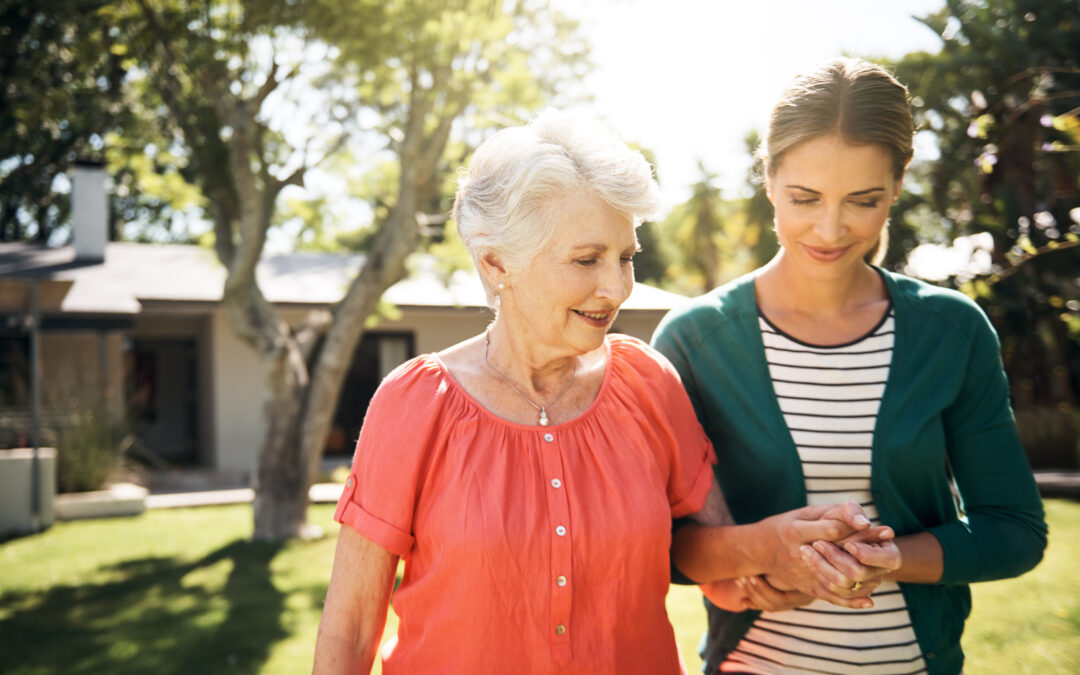Dignity Health, Yavapai Regional Medical Group Launches Alzheimer’s and Dementia Care Program
Deteriorating health and not being able to live at home are among older adults’ greatest age-related fears, according to a recent study of people age 55 and older. Dementia of any kind makes the list of medical conditions that seniors dread most.
The Alzheimer’s and Dementia Care (ADC) program – launched recently by Dignity Health, Yavapai Regional Medical Group – addresses these concerns and more. The program provides the infrastructure dementia patients need to continue living comfortably in the community.
“The ADC program is step one of a comprehensive Geriatric Services program that Dignity Health, Yavapai Regional Medical Group is introducing,” said Sam Downing, MD, Medical Director of Palliative and Geriatric Services at Dignity Health, Yavapai Regional Medical Group. “The ADC program is an evidence-based program. That means it has been thoroughly researched and proven successful.”
Customized Care Plans
Christina Gettens, DNP, AGNP-C coordinates the ADC program. As an adult gerontology nurse practitioner, Dr. Gettens brings knowledge and experience to the role of the ADC’s dementia care specialist.
“The ADC program focuses on living with dignity,” Dr. Gettens said. “Our goal is to positively impact dementia patients and their caregivers by providing exceptional, comprehensive care.”
Dr. Gettens will collaborate with everyone involved in a dementia patient’s care to meet that goal: the patient’s primary care physician and caregiver as well as professionals from community-based service organizations. Together, this team addresses the medical, behavioral, legal, and social challenges that surround Alzheimer’s disease and other types of dementia.
With input from the patient’s primary care provider, Dr. Gettens will develop a customized care plan for every ADC patient and caregiver. She then manages the plan as it’s implemented and updates it as the patient’s needs change. This care plan allows people with dementia to remain in the community with their loved ones for as long as possible.
There’s No Place Like Home
Why is living in the community – at home or in the home of an adult child, for example –better for people with dementia? Nearly 70 percent of the more than six million people in the United States with dementia live at home. Studies show that these dementia patients are healthier, happier and live longer. It’s also a more affordable option for many people.
The ADC model of dementia management also reduces hospitalizations and emergency department visits, which are difficult for dementia patients.
Breaking Down the Customized Care Plan
The ADC program customized care plan features:
- An initial 90-minute, in-person assessment meeting with Dr. Gettens, the patient and the patient’s caregiver. (Our team follows the CDC’s COVID-19 safety recommendations in your home and at our clinic.)
- An ongoing partnership with the dementia patient’s primary care provider to develop, implement, and evaluate the customized care plan.
- Information for the caregiver about reputable in-home services — nursing, home-health, meal delivery, cleaning, and more.
- Follow-up phone communication or in-person visits to check the status of the care plan and discuss if changes are needed.
- Round-the-clock phone access to the ADC team 365 days a year for assistance and advice.
- An annual or more frequent visit with Dr. Gettens to discuss the dementia patient’s ongoing and emerging needs.
Joining the ADC Program
Participating in the ADC program requires:
- An active diagnosis of dementia – or a related condition – from a primary care physician, neurologist, or other healthcare provider.
- That the patient is living at home or in a home-like setting and is not in hospice care or a custodial nursing home.
- A patient-caregiver team — husband and wife or an adult child and parent, for example.
Caring for the Caregiver
The ADC’s focus on caregivers is unique and, according to Dr. Gettens, essential to providing the best care possible for the patient.
“The dementia patient’s caregiver is a member of the ADC team,” explained Dr. Gettens. “Their involvement and observations are critical to the dementia patient’s overall health and well-being. That’s why, in addition to caring for the dementia patient, our team also monitors the caregiver.”
The goal is to identify problems like depression as early as possible and connect caregivers to helpful resources. Caregivers who need a break to regenerate may be directed by Dr. Gettens to agencies that provide respite care during the day or assisted living facilities that offer overnight stays.
A Benefit to the Community
Yavapai County ranks second among Arizona’s counties for the largest percentage of residents age 65 and older (these residents make up 32 percent of the population). Most people diagnosed with dementia are also in that same age demographic.
“The ADC program addresses an important need in our community,” Dr. Gettens noted. “I believe it will have an extremely positive impact. It’s exciting that we have the opportunity to make a sustainable difference for our community.”
Learn More
For more information, visit www.DignityHealth.org/YRMC (go to “Medical Services” on the main menu and scroll to “Geriatric Services”, subscribe to YRMC HealthConnect (at www.YRMChealthconnect.org) for updates. Contact the ADC program at 928.327.5504

